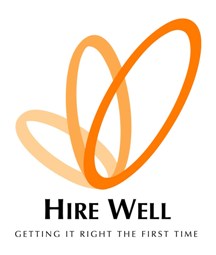Absolutely.
In this market, there is a tendency to apply to "any job that's close" and to talk the hiring manager and yourself into a particular job because you need one. This rarely works out for anyone. At worst that could cause you to fail at the job and get fired. Other potential outcomes include leaving voluntarily when the "right" job comes along and having a short job on your resume for years; or staying where you aren't happy and aren't celebrated.
Margaret points out how important it is to know yourself and what would be the best opportunity for you. I suggest that job seekers take the time to list all the aspects of their perfect job: duties, potential for advancement, location, pay, hours, environment, type of company, etc. Once you've created that list, refer to it often. If you've worked in a corporate setting and dream job is at UNUM, you don't want to accept a position at a small locally owned firm with 10 people. You won't be happy there.
Employers, will this new hire work in a noisy setting with a lot going on all the time? Or is the office isolated and very quiet? The same person will not be happy in both environments. Be honest, but not discriminatory. Fit is about company culture, assigned tasks, environment, dress code, communication style and other such aspects. The full-charge bookkeeper who has worked for 12 years in a small, very professional law office may not easily transition to a gritty environment in a car repair shop. The skills may be the same, but the fit must be considered. Once you and your team have identified what type of person would best fit this organization, make sure the entire process from advertising to interviews and reference checks screens for these attributes.
Candidates, even if you are the best potential fit for the organization, they will never know if you don't show them that in your cover letter and resume, of if your cover letter or resume have serious errors. There is simply no excuse for mistakes in these documents. Read the ad carefully and refer to the most important aspects mentioned. If your personality and fit seem to meet those they are seeking--for heaven's sake let them know! Don't simply drag out a generic letter that doesn't address their specific needs.
If the employer stated that the new hire needs to be ready to turn on a dime and change focus easily, mention how you thrived in a similar previous setting. If you are the bookkeeper mentioned above and your family owned an auto repair shop for years, highlight that aspect of your experiences in your cover letter--if you really want to move back into that environment.
Hiring Well takes time, effort and energy. Get it done right the first time, by knowing in advance what would be a good fit for you or for your company.
